
Keywords can be compared to digital footprints that users leave behind when they search for information, products, and services that need. If you want to deliver more personalized marketing campaigns, produce actionable content, or better understand user behavior patterns, it is these footprints that you need to analyze and account for.
We have compiled a list of keyword research tools that are easy to use and can provide marketing experts with valuable data to boost their performance. The best part is you don’t have to pay to access this information. So, let’s get to it straight away.
Google Trends
Google Trends provided actionable insights into the relative popularity of keywords within a specific period. By comparing two search terms against each other or analyzing the search volume of a particular keyword, you can evaluate trends and high-interest topics as they grow and evolve.
So, let’s find out everything we can about the “weight loss” search term.
The popularity of the search term over time:
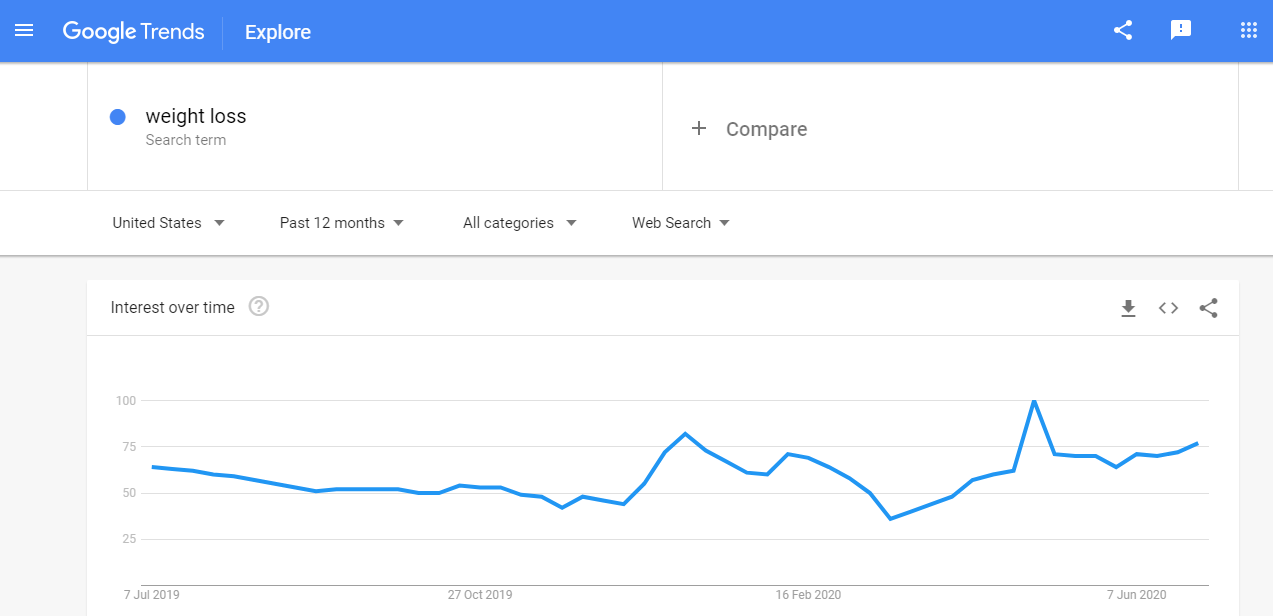
Keyword interest by sub-region:
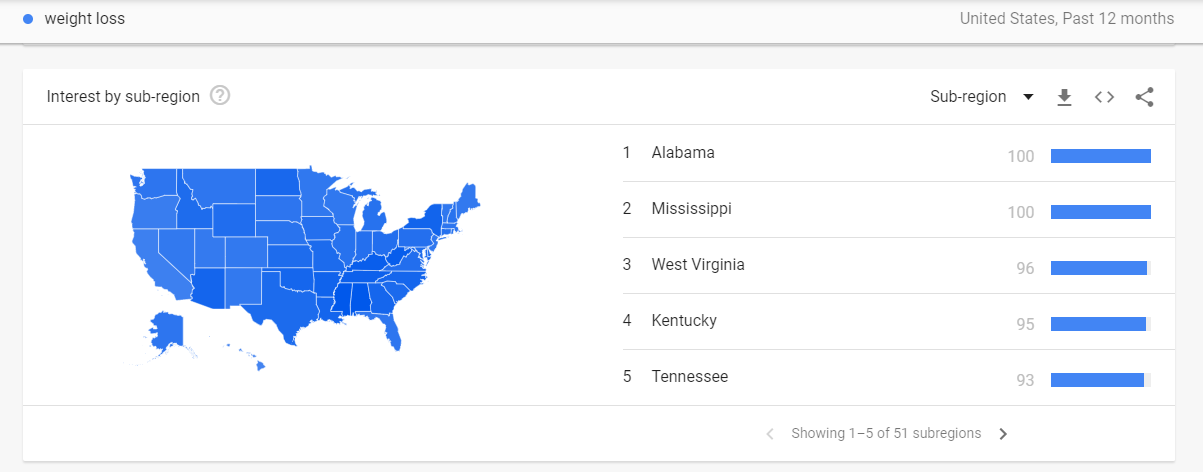
Related queries:
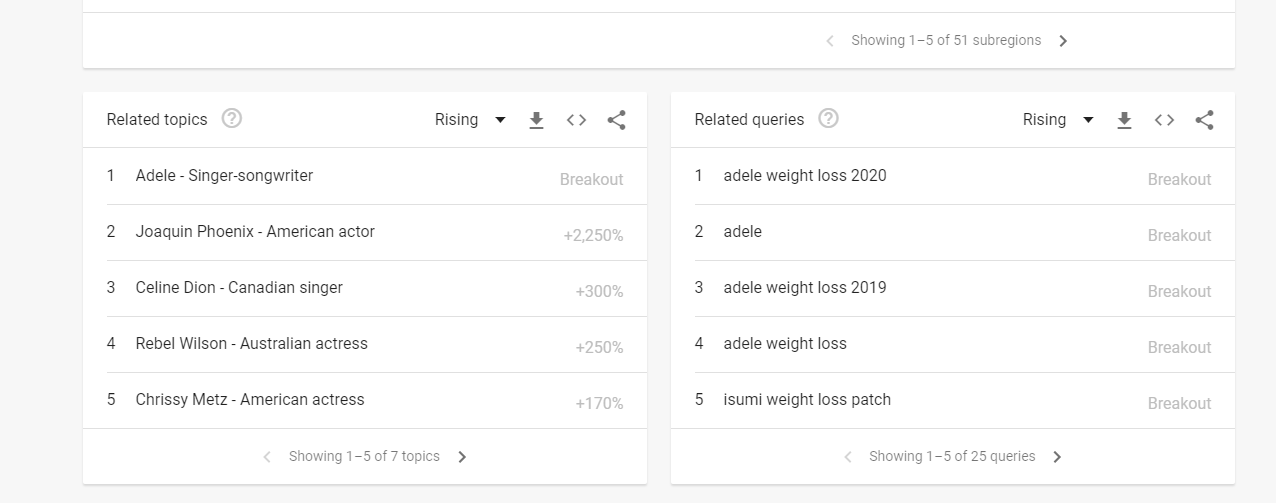
As you can see, Google Trends also gives you a set of related queries, which is valuable data you can use to run further keyword research or deliver more tailor-made campaigns. Looks like Adele’s sirtfood diet is trending this season…
QuestionDB
When looking for answers they need, people utilize both search engines and social networking platforms like Reddit. QuestionDB is a tool that has created a massive database of user questions asked on Reddit to help you assess keyword relevance and get new content ideas.
The only thing you need to do is to enter a search query related to your product or offer in the search field and analyze the results. Here’s what people think or ask about dating sites:
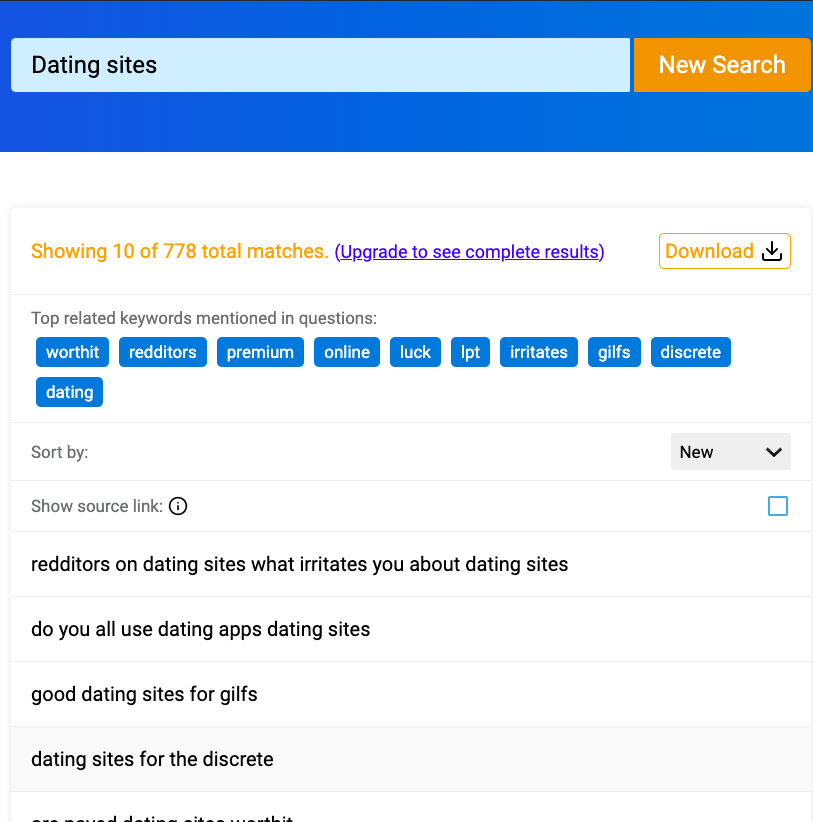
AnswerThePublic
Another great tool is AnswerThePublic. It gives you valuable insights into the type of questions your target audience searches for on the web. By breaking down related questions, you can gain a better understanding of your prospective customers.
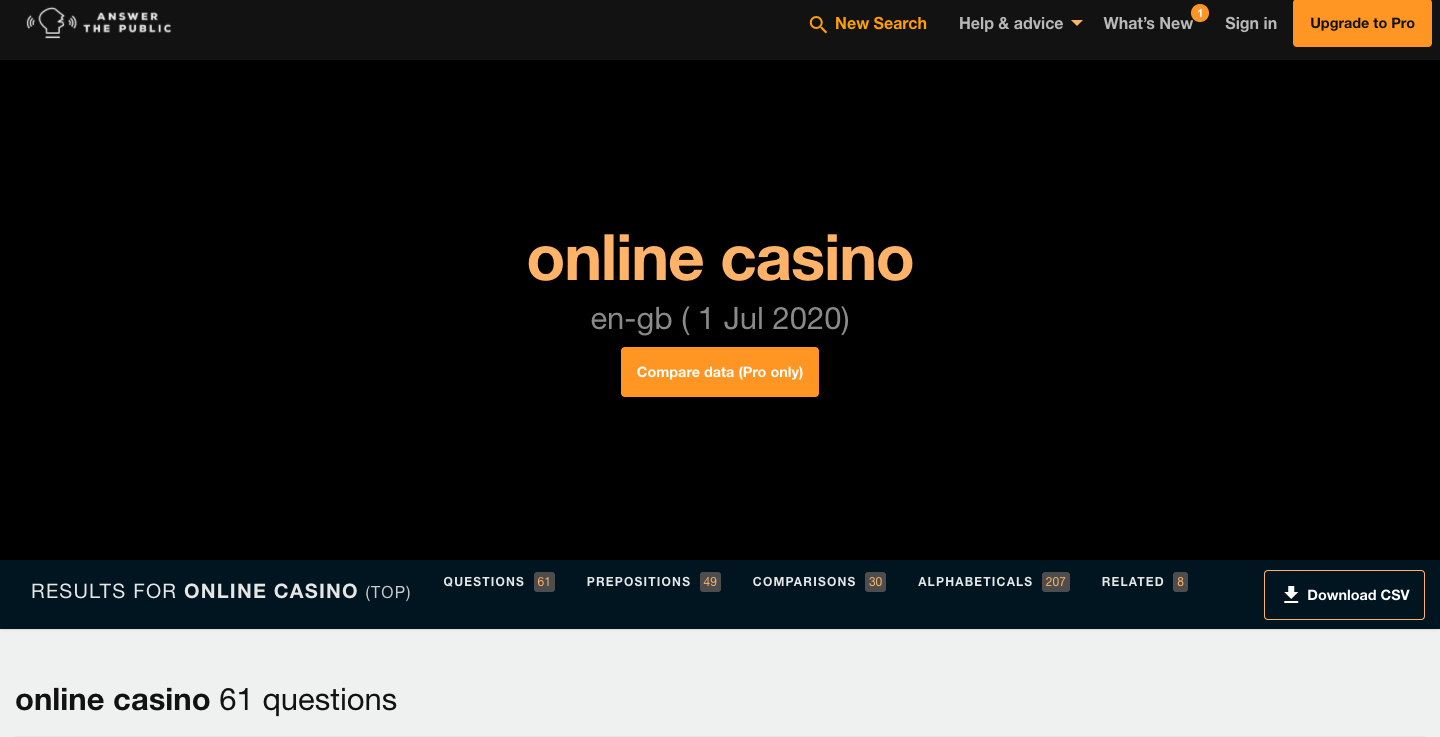
As you can see, there are more than 60 casino-related questions, prepositions, and queries you can analyze.
Keyword Tool Dominator
The name of the tool speaks for itself: KTD allows you to see keyword data from the likes of Amazon, eBay, Etsy, Walmart, Google, Google Shopping, YouTube, and Bing.

First of all, you’ll need to decide which platform you would like to get keyword insights from. We chose Google and Amazon. Here is an example of the keywords provided for the query “credit card knife” and “betting”:

Credit card knife
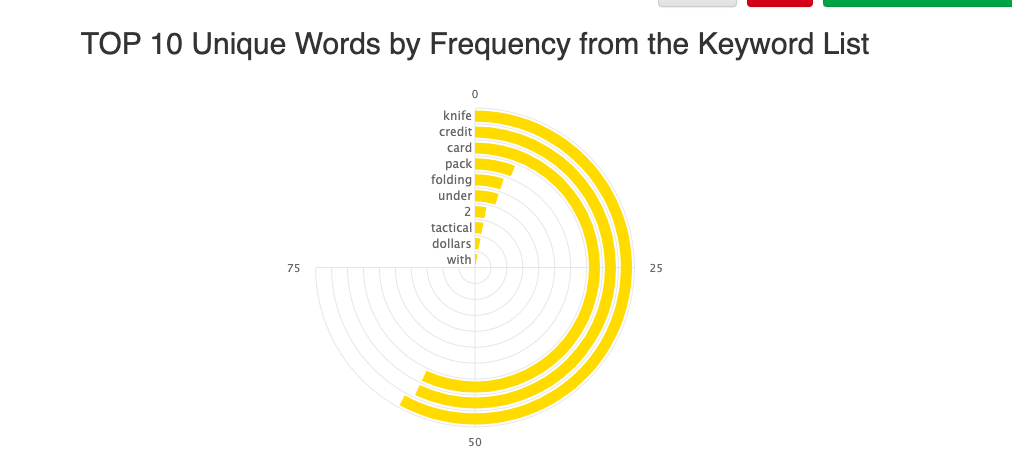
Credit card knife
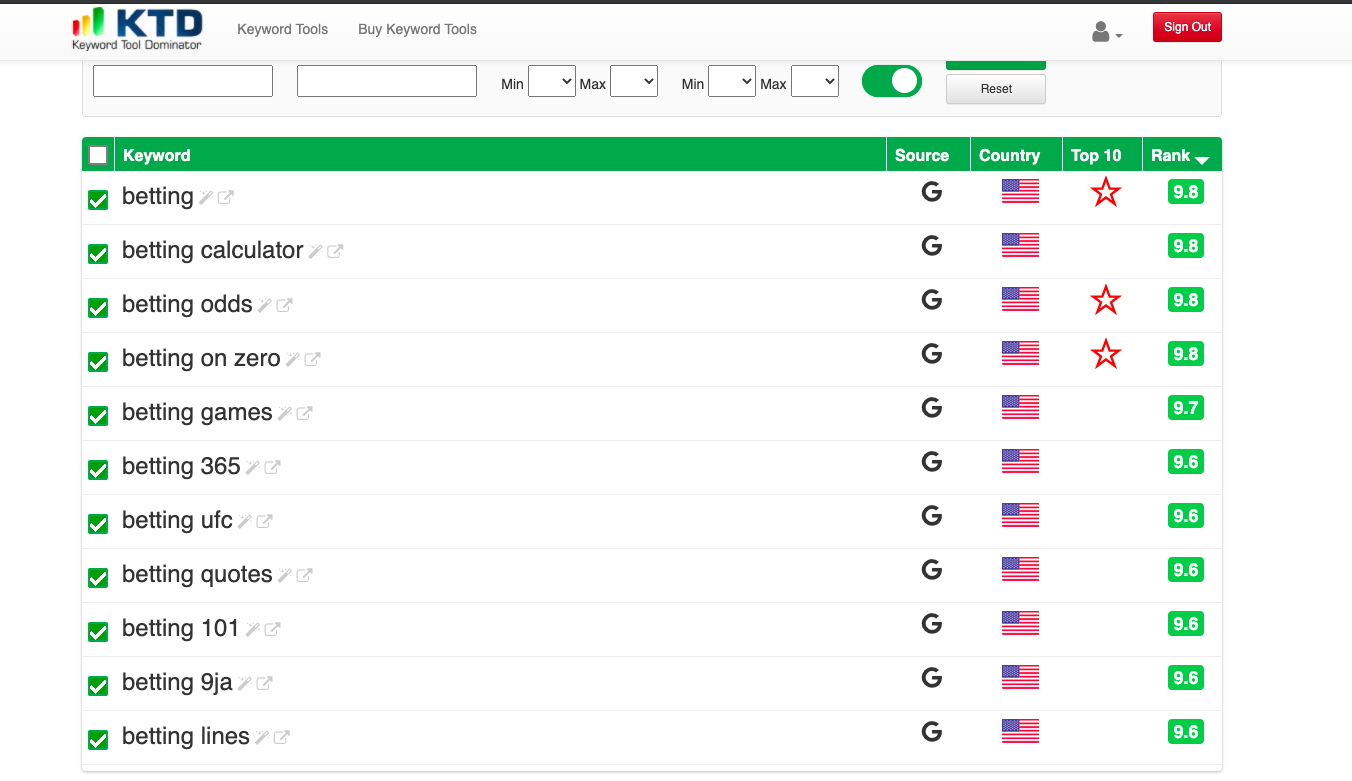
Betting
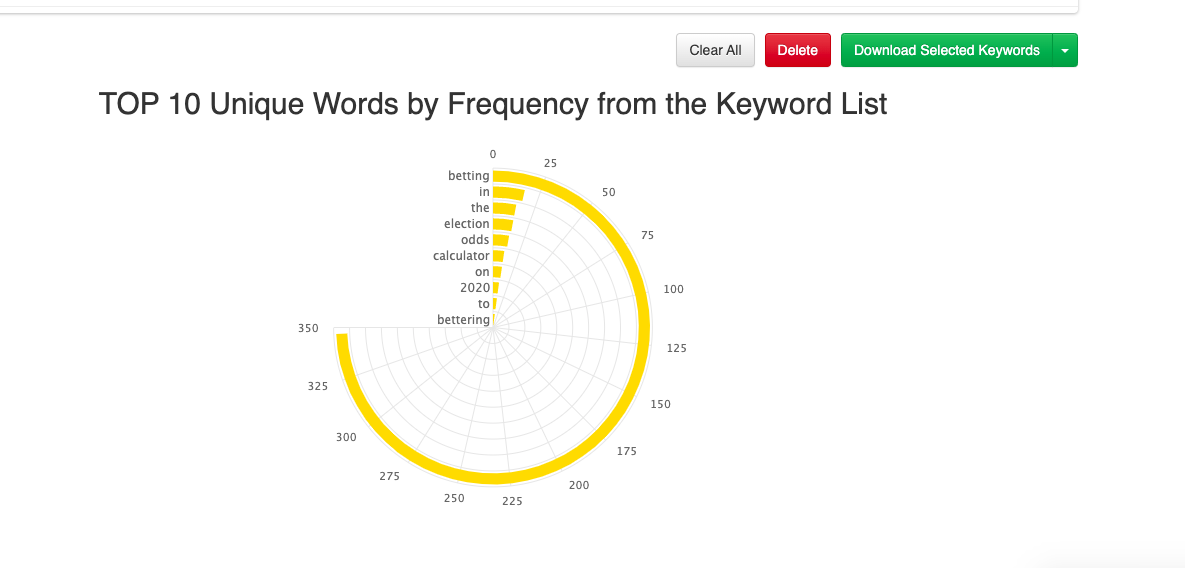
Betting
Note that if you want to get access to extended functionality, you’ll need to register on the platform, buy a paid account, and install a special plugin. If you have a free account, you are limited to three searches per day per tool.
Also Asked
Also Asked is a tool for analyzing keywords in context. The service was designed to help marketers understand what questions to answer in the content they produce or creatives they make. If you enter a particular keyword in the search box, an extensive set of questions will came back for your query.
Here are the results for the query “affiliate marketing”:
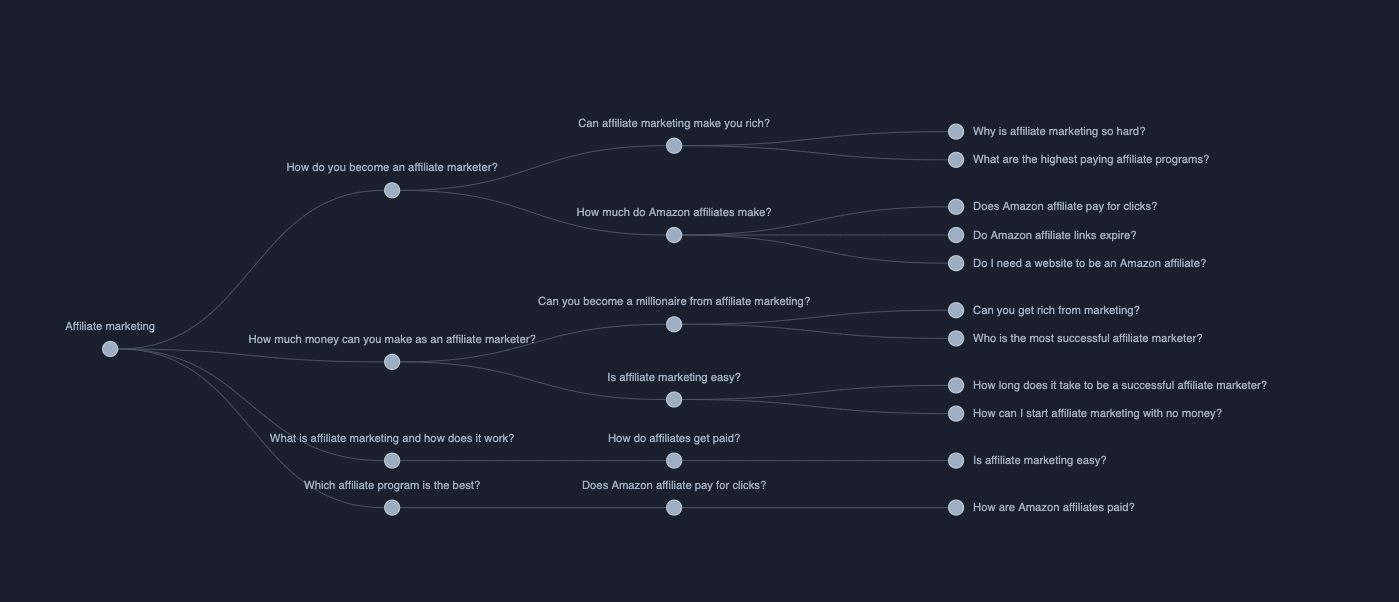
Keyword Magic Tool
Last on the list is Keyword Magic Tool by SEMrush, a simple yet effective tool to analyze keywords, evaluate seasonality, see the search volume of a particular query, and many more.
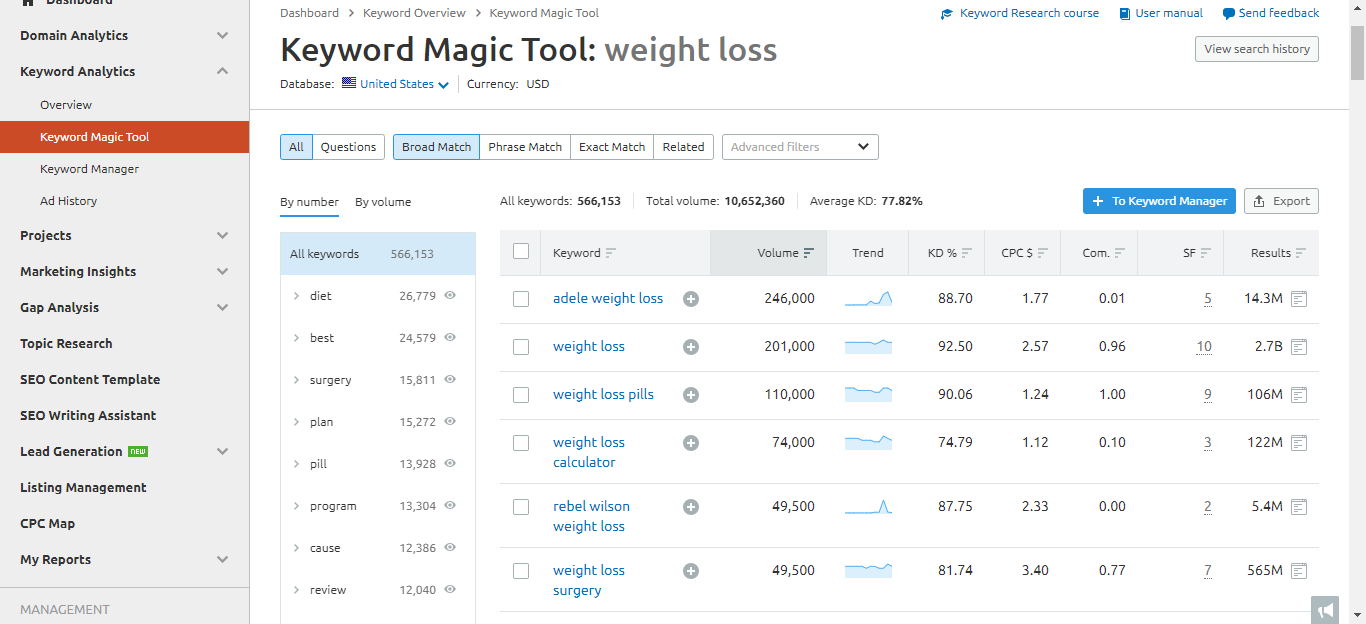
Hopefully, these 6 tools will help you learn more about user behavior and keyword data to come up with more effective affiliate marketing campaigns.
Good luck!
If you want to reach new GEOs and audiences, maybe it is all waiting for you on Telegram? We’ve prepared some material about Telegram audiences. What are the messenger’s users like this year? How old they are, what they do, and what they are interested in!




